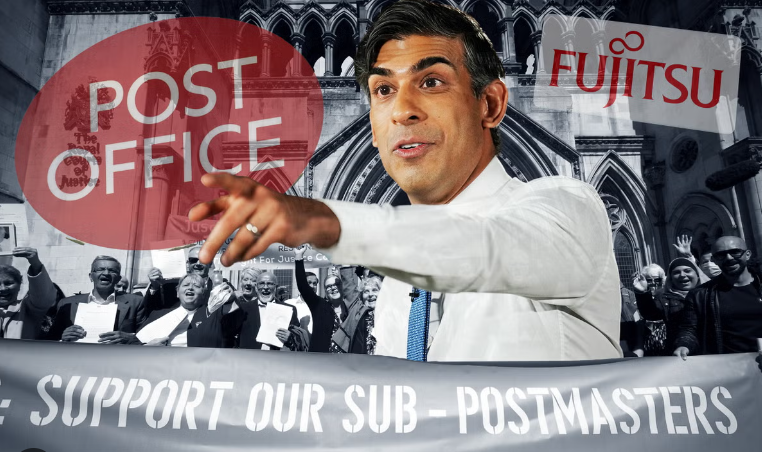
There’s a big scandal in Britain. It’s been bubbling away for almost thirty years, but has only come into the mainstream today thanks to a TV drama about what happened. So, 2024 started with this TV dramatization of the true story of how the UK postal service bankrupted many of their franchise holders due to the implementation of a new computer system called Horizon, from Fujitsu.
The gist of the story is that Fujitsu could change each post office balance remotely, and that transactions were often recorded incorrectly, leaving the sub post office master in debt and, by an illegal contract relationship, any debts the postmaster would have to pay. Therefore, if the faulty IT system said you owed £20,000, then you had to pay £20,000 or go to court and possibly to jail. Tough.
If you’re British, the story is probably boring you already, as it has become a hot media item. Funny that it took a TV drama to make it a media debate when the story has been around for decades. Nevertheless, the result is that the government and authorities are all now being pinned to the post to account for why they acted the way they did.
I would tell you more, but watch the TV series to really get it Mr Bates vs the Post Office.
The critical factor that came out of all of this is a failed IT project and a cover-up of its results. This is the part that confuses, but it does show how management are very nervous of admitting their own failures. Instead, they would rather blame the failures on the innocent.
In this case, sub postmasters – people who act as the officers of the Post Office – were accused of bucking the system and stealing funds. The errors were actually caused by the failures of their IT system, but the Post Office decided to accuse their own sub postmasters of theft, fraud and false accounting, resulting in a number of them (over 700) being taken to court, bankrupted and jailed.
It’s absolutely disgusting but, yet again, why would the management within the Post Office take their own sub postmasters to court when their IT provider had told them that their systems weren’t working.
This is a question raging around Britain, but surely it’s a question we should ask all of our executives, whether in postal services, banking, retail or wherever. Why would you defend decisions you made that punish your people?
It’s interesting, as it reminded me of (Sir) Fred Goodwin and the Royal Bank of Scotland (RBS) debacle, a farce that continues to this day under (Dame) Alison Rose. Equally, it reminds me of another scandal right now of Michelle Mone, who allegedly ripped off the government for millions during the Covid crisis.
I’m sure this is not limited to Britain, but it does make it look like a mess where hundreds, thousands and millions of people are walked over by the rich and powerful. Oh no, I’m sounding like a militant again. But then, as Davos is on this week, a quote did hit me in the face about the ever widening inequalities of our world:
“This ever-widening gulf between the rich and the rest isn't accidental, nor is it inevitable. Governments worldwide are making deliberate political choices that enable and encourage this distorted concentration of wealth.” Aleema Shivji, interim CEO of Oxfam
What was he talking about? This:
Wealth of five richest men doubles since 2020, as wealth of five billion people falls
The world’s five richest men have more than doubled their fortunes from $405 billion (£321 billion) to $869 billion (£688 billion) since 2020, while the wealth of the poorest 60 per cent - almost five billion people.
Oxfam’s report predicts that, by 2030, one of the world’s richest will be a trillionaire. Meanwhile, the majority of us will be scrimping and scraping just to get by. Times never change.
Chris M Skinner
Chris Skinner is best known as an independent commentator on the financial markets through his blog, TheFinanser.com, as author of the bestselling book Digital Bank, and Chair of the European networking forum the Financial Services Club. He has been voted one of the most influential people in banking by The Financial Brand (as well as one of the best blogs), a FinTech Titan (Next Bank), one of the Fintech Leaders you need to follow (City AM, Deluxe and Jax Finance), as well as one of the Top 40 most influential people in financial technology by the Wall Street Journal's Financial News. To learn more click here...

